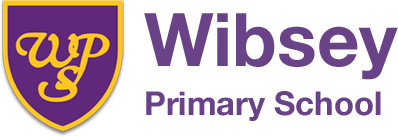Computing
Computing
The National Curriculum aims to deliver a high-quality computing education which equips pupils to understand and change the world through computational thinking.
At Wibsey Primary School, all children are given access to a high-quality, holistic computing curriculum to enhance learning. We are incredibly proud of our Computing Suite and each class has an allotted 1 hour in the suite each week, in addition to Year Group Mathletics Clubs which are held at lunchtimes and also the Computing Club which aims to re-start after October half term. Throughout school, we also have other technology such as iPads, bee-bots, surfaces and iPods. Our lessons follow “Switched on Computing” and teaching is done through topics, such as ‘We are treasure hunters’, ‘We are astronauts’, ‘We are web developers’. ‘We are Meteorologists’ and ‘We are market researchers’, just to name a few.
Below are the National Curriculum Computing Outcomes which children are required to meet by the end of each Key Stage.
Key Stage 1
Pupils should be taught to:
- understand what algorithms are, how they are implemented as programs on digital devices, and that programs execute by following a sequence of instructions
- write and test simple programs
- use logical reasoning to predict the behaviour of simple programs
- organise, store, manipulate and retrieve data in a range of digital formats
- communicate safely and respectfully online, keeping personal information private, and recognise common uses of information technology beyond school.
Key Stage 2
Pupils should be taught to:
- design and write programs that accomplish specific goals, including controlling or simulating physical systems; solve problems by decomposing them into smaller parts
- use sequence, selection, and repetition in programs; work with variables and various forms of input and output; generate appropriate inputs and predicted outputs to test programs
- use logical reasoning to explain how a simple algorithm works and to detect and correct errors in algorithms and programs
- understand computer networks including the internet; how they can provide multiple services, such as the world-wide web; and the opportunities they offer for communication and collaboration
- describe how internet search engines find and store data; use search engines effectively; be discerning in evaluating digital content; respect individuals and intellectual property; use technology responsibly, securely and safely
- select, use and combine a variety of software (including internet services) on a range of digital devices to accomplish given goals, including collecting, analysing, evaluating and presenting data and information.
If you require any further information about our Computing Curriculum, then please do not hesitate to contact us and we will be more than happy to try and address any questions you may have.
Miss Dixon (KS1)
Mrs Egan (KS2)
